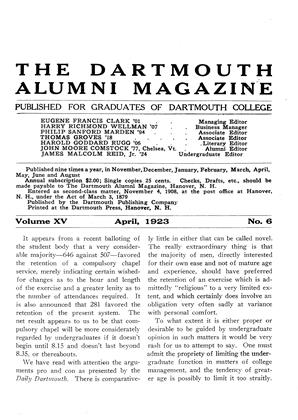"Cross Currents in Europe Today," by Charles A. Beard, Ph.D., LL.D.: Marshall Jones Company, Boston.
Professor Beard's exceptionally able and interesting book consists of the lectures which he delivered in Hanover last June on the Guernsey Moore Foundation. The eight lectures fall into two groups: one, consisting of three lectures, deals with the diplomatic antecedents of the World War; the other, of five lectures, discusses the economic condition of Europe since the war, the constitutions of the states which have undergone revolution and of the new states which have come into existence as a result of the war, the Russian revolution, the rise of several new peasant democracies, the effect of the war upon socialism and the labor movement in Europe, and the manner in which the United States has been affected by the war. At the end there are nine "conclusions," which Professor Beard very modestly suggests ought rather to be called "A Few General and Tentative Reflections."
The lectures of the first group are based chiefly upon the documents from the Russian, German, and Austrian archives made public by the governments which have succeeded those in existence when the war broke out. The Belgian documents published during the war by the Germans have also been used. In the limited space at his disposal Professor Beard could not hope to give a demonstration with detailed proofs of the reasons why the war occurred. At most he could only indicate the general impression made upon his mind by a study of the documents. His interpretation is a genial, discriminating and fairminded version belonging to the school of thought represented by E. D. Morel, Earl Loreburn, and the pacifist wing of the English Liberal party of the years 1906 to 1914. To me it seems a mistaken view and I cannot believe that it is the interpretation which will finally find general acceptance. It appears to me often to put the emphasis in the wrong place and to disregard some of the most important considerations. From the beginning of the conflict Professor Beard's sympathies were strongly with the Allies. He realized the significance of the issues which were at stake. Now that the victory has been won it seems to me that he has made the mistake often committed by men of generous and liberal mind. In his desire to be fair he has come to lean over backwards, imputing to the governments of Russia, France, and England a greater measure of responsibility than is fairly chargeable to them and charitably refraining from putting upon the German and Austrian governments as much responsibility as may fairly be charged to their account.
All of the five lectures devoted to conditions in Europe since the war are illuminating and suggestive. They exhibit in striking fashion Professor Beard's unusual gift for seizing the significant aspects of complicated problems and for stating them in simple fashion. Those upon the Russian revolution and upon socialism and the labor movement are particularly valuable. They bring out the significant tacts along with a sound interpretation. Readers who desire brief accounts of these important subjects are not likely to find anything better. The last lecture, on America and the balance of power, brings out in vivid fashion that it is a new America which has emerged from the war, an America confronted by great opportunities and equally great responsibility for the wise use of the tremendous power which the war has placed in her hands.
Resting in the snow
 View Full Issue
View Full Issue
More From This Issue
-
 Article
ArticleIt appears from a recent balloting
April 1923 -
 Article
ArticleAN ALUMNUS ON THE OUTING TRAIL
April 1923 By ALBION B. WILSON '95 -
 Article
ArticleTHE SELECTIVE PROCESS AFTER ONE SEMESTER
April 1923 -
 Article
ArticleMEMBERS OF COLLEGE GET HIGH SCHOLARSHIP RECORDS
April 1923 -
 Article
ArticleINDIVIDUAL RECORDS OF PHI BETA KAPPA SENIORS
April 1923 -
 Class Notes
Class NotesCLASS OF 1911
April 1923 By Nathaniel G. Burleigh
FRANK MALOY ANDERSON
-
 Books
BooksAlsace-Lorraine Under German Rule
March 1918 By FRANK MALOY ANDERSON -
 Books
BooksVan Winkle, '07
DECEMBER 1927 By Frank Maloy Anderson -
 Books
BooksSINCE THE CIVIL WAR
May 1936 By Frank Maloy Anderson -
 Article
ArticleMr. Anderson's List
November 1939 By Frank Maloy Anderson -
 Books
BooksFRANCE 1940-1942, A COLLECTION OF DOCUMENTS AND BIBLIOGRAPHY.
November 1942 By Frank Maloy Anderson -
 Books
BooksFACULTY PUBLICATIONS
November, 1025 By Franklin Mcduffee, Frank Maloy Anderson
Books
-
 Books
BooksPUBLICATIONS
May 1917 -
 Books
BooksTHE LAND OF THE POLISH PEOPLE
December 1943 -
 Books
BooksTHE GEOGRAPHY OF POVERTY IN THE UNITED STATES.
NOVEMBER 1972 By ALBERT S. CARLSON -
 Books
BooksOWEN GLEN
October 1950 By Herbert F. West '22 -
 Books
BooksSTUDIES IN AMERICAN SOCIETY.
NOVEMBER 1965 By ROBERT H. GUEST -
 Books
BooksTHE COLLECTED POEMS OF DILYS LAING.
JANUARY 1968 By VERA VANCE


